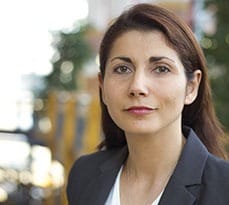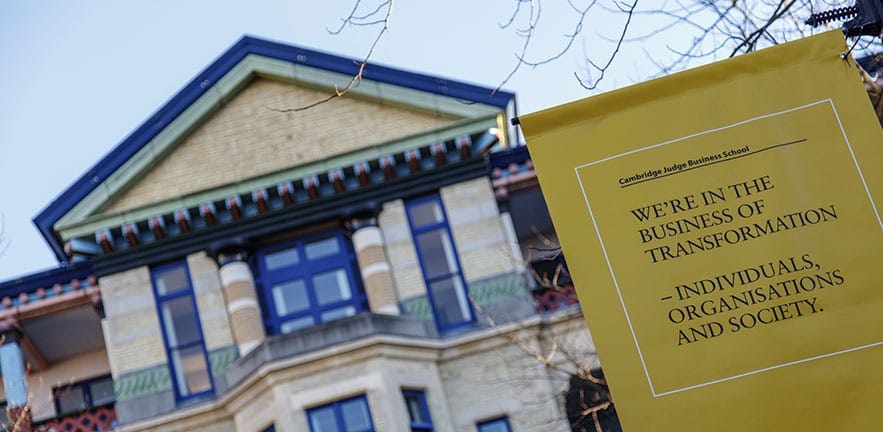Dr Allègre Hadida of Cambridge Judge Business School honoured as a winner of the 2018 Pilkington Prize for excellence in teaching at the University of Cambridge.

Dr Allègre Hadida, University Senior Lecturer in Strategy at Cambridge Judge Business School, was named by the University of Cambridge as one of 12 winners of the 2018 Pilkington Prize for excellence in the field of teaching.
Allègre is the first woman faculty member at Cambridge Judge to be recognised for the prestigious teaching awards since they were inaugurated in 1994. The prizes, awarded annually by the Vice-Chancellor of the University of Cambridge, aim to raise the profile of teaching within the University by recognising individuals who have made an outstanding contribution to teaching and learning.
Allègre is a Fellow and Director of Studies at at Magdalene College, and a faculty member of the Centre for Film and Screen at the University of Cambridge. She has pioneered teaching and research in Cultural, Arts and Media Management and on Creativity in Business at Cambridge Judge and on the Cambridge MBA.
During her three years as Director of the University of Cambridge MPhil in Management (2013-2016), Allègre restructured the programme and developed it into a flagship course. She is the recipient of two Cambridge Judge Faculty Teaching Prizes and four Cambridge MBA Professor of the Year Awards for her innovative MBA Strategy core course, which was also ranked in 2017 second worldwide by the Financial Times.
Other winners of the 2018 Pilkington Prize include recipients from the Departments of Geography, Physics and Veterinary Medicine, the Faculty of Law, and the School of Clinical Medicine at the University of Cambridge.
Previous winners of the Pilkington Prize among current or former faculty members at Cambridge Judge include Professor Jochen Runde, Dr Simon Taylor, Michael Kitson, Dr Simon Learmount, Dr Philip Stiles, Professor Gishan Dissanaike and Dr Richard Barker.
The Pilkington Prizes were endowed by Sir Alastair Pilkington, who studied Mechanical Sciences at Trinity College from 1938. He later joined the Pilkington glass making company, where he invented the “float” method of glass making which transformed the industry.


